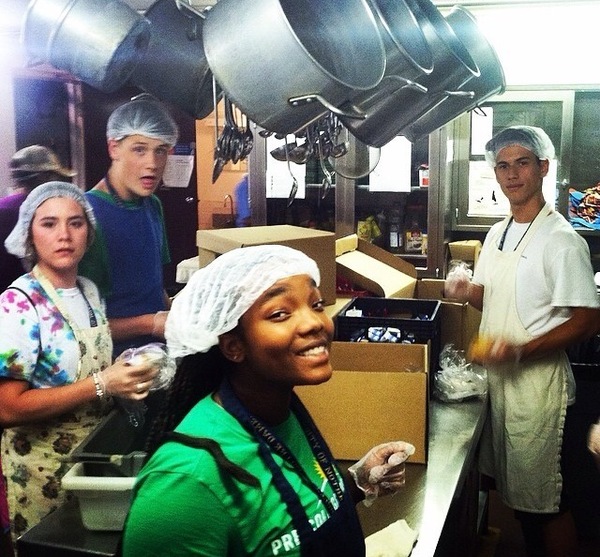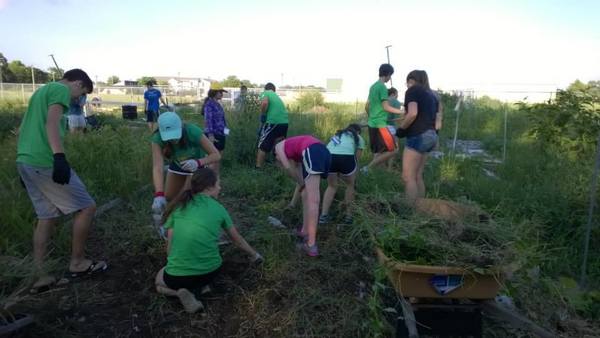The University of Notre Dame's Office of Pre-College Programs provides a real taste of campus life - from competitive admissions to college-credit courses to community service - for hundreds of high school students from around the world. Many return as undergraduates.
The Summer Scholars Program, started in 1999, brings 270 students from Singapore to Switzerland and across the United States for two weeks of intensive study in one of 18 classes, including American politics, archaeology, entrepreneurship, film production, global health, voice performance, and theology.

“We started about 15 years ago,” says Angie Yugo, the associate program director who joined eight years ago. “Service was always a part of the program because that’s such a big part of being here at Notre Dame. We wanted to do the same with the students we were trying to recruit.”
The service connects the students to local agencies such as Hope Ministries, the YWCA, and Unity Gardens added this year as well as Robinson Community Learning Center, Hannah & Friends, Healthwin, and others. This year, like last year, Summer Scholars collected tons of food in neighborhoods and at Martin’s Supermarkets for United Way’s People Gotta Eat.

“The program is a good introduction to Notre Dame,” says Paulette Curtis, faculty director of undergraduate and pre-college programs. “On top of doing service, they live in residence halls. The residential staff are mostly Notre Dame students. They do things on campus that give them a taste of the Notre Dame experience,” from basketball games to visits to the Grotto.
More than 600 students apply to each of the highly-selective programs each year in a process that prepares them for undergraduate admissions.
This year’s Summer Scholars program, focused on poverty and food insecurity, included a screening of the documentary A Place at the Table with a panel discussion including film director Kristi Jacobson, Keith Sarber from United Way of St. Joseph County, Bonnie Bazata from Bridges Out of Poverty, and Connie Mick from Notre Dame's Center for Social Concerns.“We try to mirror the same process,” Yugo says. “They go through an online application, teacher recommendations, transcripts, standardized test scores, an essay, etc. We go through and vet the students.”
Nearly 30 Notre Dame professors teach in the two programs’ courses, and students can earn one college credit. Some of the classes include field trips to Union Station Technology Center, the Catholic Worker House, Fridays at the Fountain, the Center for History, and the Sister Maura Brannick CSC Health Center.“We try to give them an introduction to our community, including the downtown area and local restaurants, as well as opportunities to serve,” says program coordinator RaeLee Rea. “The service is all local.” Students who return to Notre Dame as undergraduates often reconnect to the agencies as volunteers.